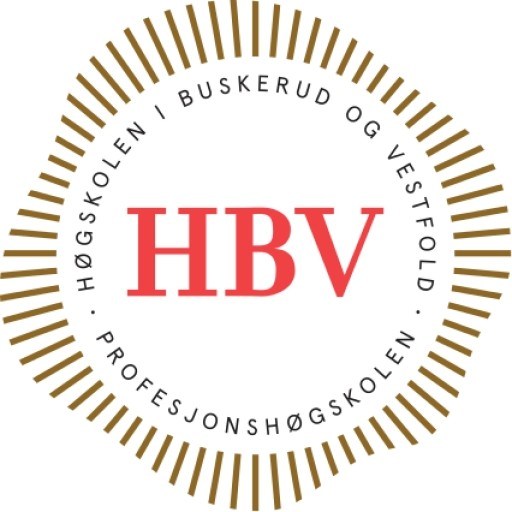Photos of university / #qataruniversity
The Bachelor of Arts in Gulf Studies at Qatar University offers students a comprehensive understanding of the history, culture, politics, economy, and social dynamics of the Gulf Cooperation Council (GCC) countries. This interdisciplinary program aims to provide learners with a nuanced perspective on the regional issues that shape the Gulf region today. Through a combination of coursework, research projects, and experiential learning, students will explore topics such as Gulf history, Islamic civilization, regional politics, economic development, foreign policies, and contemporary social challenges. The curriculum is designed to enhance critical thinking, analytical skills, and cultural awareness, preparing graduates for careers in government, academia, research institutions, media, diplomatic services, and regional organizations. The program emphasizes the strategic importance of the Gulf region within the broader Middle Eastern context and aims to foster a nuanced understanding of Gulf identities, regional cooperation, and geopolitical developments. Students will benefit from the expertise of faculty members who are specialists in Middle Eastern studies, political science, history, and economics. The Gulf Studies program also encourages active engagement with regional issues through seminars, conferences, and internships, providing practical exposure to the field. Graduates of this program will be equipped to contribute to policy development, scholarly research, and regional development initiatives, promoting dialogue and understanding within the Gulf and beyond. With a duration typically spanning four years, the program combines foundational courses with specialized electives, culminating in a final project or thesis that demonstrates comprehensive knowledge and analytical skills. Overall, the Gulf Studies program at Qatar University is dedicated to fostering a new generation of regional experts who can contribute to the socio-economic and political progress of the Gulf countries and strengthen regional integration and stability.
The Gulf Studies Center encompasses three core research areas, which includes Politics and Security, Energy and Economics, and Social Issues. Each of the areas is coordinated under the leadership of a research coordinator, and directs a number of interdisciplinary research clusters. As the Gulf States emerge as major international players, there is a growing need for in-depth research and scholarship on the Gulf. The field of Gulf Studies is one that is wide-ranging – from issues of politics and regional security, labor migration, and education, to resource management and sustainable development.
- All admitted graduate students with GPA of 3.0 or higher are eligible to apply for the award.
- Graduate students must show that they have met the minimum English language proficiency requirements (TOEFL or IELTS tests), as well as that of the Arabic language proficiency requirements, if required. Applicants should contact their academic departments for further information;
- Applicant must submit an application for Graduate Assistantship along with the application for admission to a graduate program; • The deadlines for assistantship applications are the same as those for admission;
The number of GA awards is contingent on colleges’ demand for teaching assistants based on course offerings, laboratory sessions, enrolment, number of faculty and available funds.
The financing of the Gulf Studies program at Qatar University is primarily supported through a combination of governmental funding, university budget allocations, and external research grants. As a public institution, Qatar University relies heavily on funding from the Qatar Ministry of Education and Higher Education, which allocates financial resources to develop various specialized programs, including Gulf Studies. This funding is intended to support curriculum development, faculty salaries, student scholarships, and research activities associated with the program. Additionally, Qatar University benefits from its strategic position within Qatar's broader national development plans, which prioritize regional studies and diplomacy; hence, there is institutional support to ensure the program's sustainability and expansion.
External funding also plays a role, especially from international entities and research grants tied to Gulf regional issues, security, politics, and economic development. The university often participates in collaborative research projects that receive funding from regional organizations, international bodies, and academic consortia. Such external funding helps to enhance the program’s research output, facilitate faculty and student exchanges, and organize conferences and workshops related to Gulf affairs.
Student financing is primarily through scholarships and stipends provided by the Qatar government, including full or partial tuition waivers for Qatari nationals and, in some cases, international students admitted to the program. The university strives to make graduate education accessible by offering financial aid packages that cover tuition fees and living expenses for outstanding students, especially those involved in research projects aligned with national priorities.
Furthermore, the program may attract funding from private sector partnerships, especially with institutions involved in Gulf economic development, foreign policy, and regional security, which seek to support academic research and policy analysis. These collaborations can include funding for specific research initiatives, internships, and capacity-building activities for students and faculty.
Overall, the financing strategies for the Gulf Studies program at Qatar University are designed to ensure ongoing financial stability, promote high-quality research and education, and foster regional engagement, reflecting the strategic importance of Gulf regional issues to Qatar's national interests.
Gulf Studies at Qatar University offers an interdisciplinary program designed to provide students with a comprehensive understanding of the Gulf region's political, economic, cultural, and historical contexts. The curriculum emphasizes a multidisciplinary approach, incorporating perspectives from international relations, history, anthropology, economics, and political science to foster a nuanced understanding of Gulf societies and their place in the broader Middle Eastern and global contexts. The program aims to equip students with critical thinking, research, and analytical skills necessary for careers in academia, government, NGOs, or private sectors focusing on Gulf Affairs. Courses cover topics such as Gulf history, regional politics, oil economics, cultural identities, security issues, and regional integration efforts. Students are encouraged to engage in research projects and fieldwork to gain practical insights and firsthand experience. The program also offers opportunities for internships and exchange programs, promoting practical exposure and regional integration. The faculty comprises experts in Gulf studies, Middle Eastern studies, and related disciplines, providing students with mentorship and guidance. Graduates of the program are prepared for roles in diplomatic service, international agencies, research institutions, media, and consultancy firms specializing in Gulf region analysis. The program is designed to foster a deep understanding of the geopolitical dynamics, socio-economic developments, and cultural diversity within Gulf countries such as Qatar, Saudi Arabia, the UAE, Kuwait, Bahrain, and Oman. It emphasizes regional cooperation, challenges, and future prospects. The university supports students with modern facilities, libraries, and access to research databases to enhance their learning experiences. The program also encourages participation in seminars, conferences, and regional forums to stay updated with current developments and network with regional experts. Overall, Gulf Studies at Qatar University prepares students to become informed and engaged professionals capable of contributing to the understanding and development of the Gulf region.











